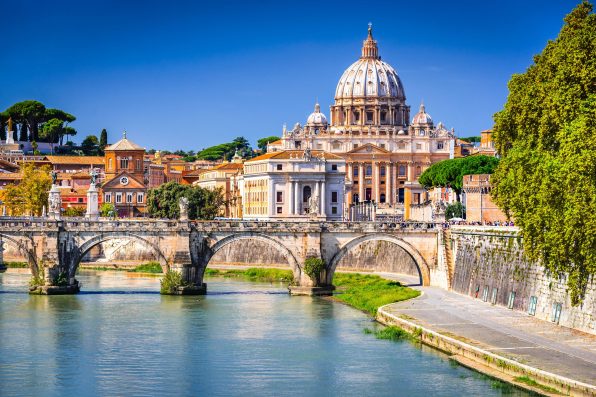Near Vatican City in Italy, a 2,000-year-old garden that once belonged to a Roman emperor was discovered. The garden overlooks the banks of the Tiber River, which cuts through Rome to the east of Vatican City.
According to a translated statement from the Italian Ministry of Culture, construction workers unearthed the garden’s ruins while building a new overpass at Piazza Pia. When they removed the debris, they found a lead water pipe inscribed with the words “C(ai) Cæsaris Aug(usti) Germanici.”
Researchers determined that the inscription referred to Gaius Caesar Augustus Germanicus, who, in childhood, was nicknamed “Caligula,” which meant “little boot,” by his father’s soldiers. The garden most likely belonged to the emperor.
Caligula took the throne in A.D. 37. During his four-year reign, he drained the Roman treasury, spending large amounts of money on lavish building projects.
For instance, he ordered a two-mile floating bridge to be erected on the Bay of Bauli. The sole purpose of the bridge’s construction was so he could gallop across it on his horse for two days.
Finally, he was stabbed to death, along with his wife and daughter, in A.D. 41 by the Praetorian Guard, the officials who were supposed to protect him.
For everyone involved, it was long overdue, as Caligula was known for being a ruthless tyrant who liked to humiliate his senate by forcing members to run for miles in front of his chariot. He was the first Roman emperor to die by assassination.
The garden was mentioned in the ancient text “On the Embassy to Gaius,” written by Egyptian philosopher Philo of Alexandria. A passage from the text described how Caligula met with a representative of Jews living in Alexandria in a garden situated along the Tiber.
At the time, there was a lot of violence and religious intolerance between Jewish Alexandrians and Greeks in Alexandria. The Jews requested the freedom to practice their religion, but Caligula took the Greeks’ side instead.

Sign up for Chip Chick’s newsletter and get stories like this delivered to your inbox.


